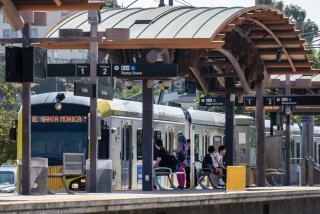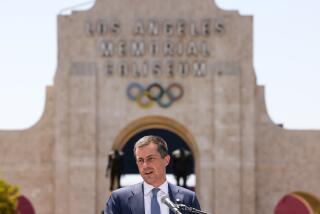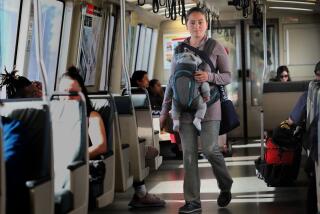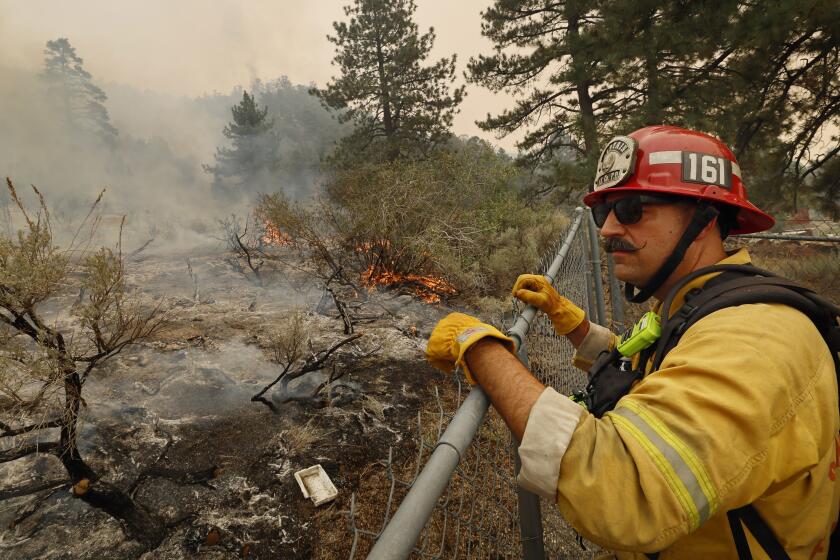MTA bus and train fares to rise Monday
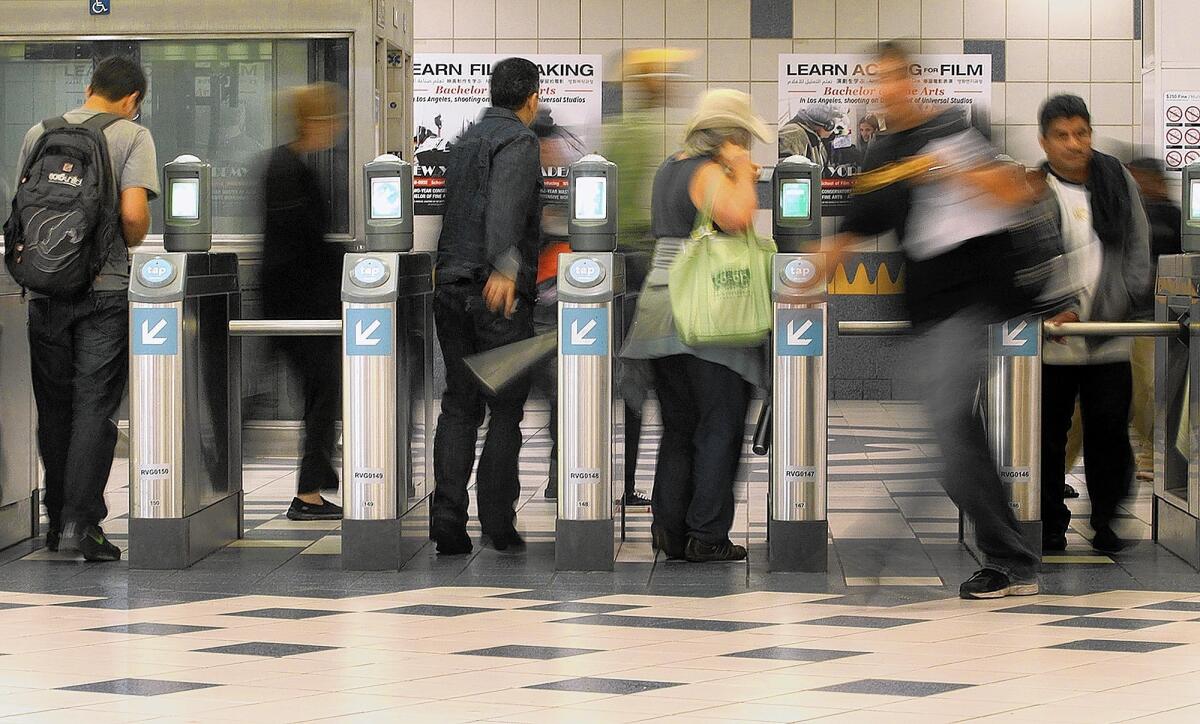
Commuters will start paying more this week to board buses and trains operated by the Los Angeles County Metropolitan Transportation Authority, which is raising fares Monday morning for the first time in four years.
At 12:01 a.m. Monday, one-way Metro bus and rail fares will increase from $1.50 to $1.75, and monthly passes will increase from $75 to $100. Fares for senior and disabled passengers will go up from $0.55 to $0.75. One-way fares for students in grades K-12 will remain at $1.
The other major change starting Monday — two hours of free transfers — may ease the pain of higher fares for some riders, Metro says. For the last decade, passengers have been required to pay a new fare each time they board a bus or train. Metro says that has discouraged efficient use of the system because riders tend to avoid transfers, placing added strain on some lines and limiting use of others.
The fare increase comes in the midst of the biggest rail boom in the history of Los Angeles. By the end of this year, five new lines will be under construction, spanning downtown Los Angeles, mid-Wilshire, Azusa, South L.A. and Santa Monica. Once operational, the routes will add significantly to the agency’s operating budget.
Monday’s fare hike is expected to increase the portion of the agency’s operating budget funded by ticket income to about 27% or 28%, up slightly from the current rate. That means about 72% of operating costs would be funded through taxes and grants — making Los Angeles one of the most subsidized transit networks in the world. A ratio less than 33% could jeopardize Metro’s future chances of receiving federal grants.
Metro staff members estimate that ridership will drop by 3% to 4% during the first six months of the increase, but that fare revenue will grow by $21 million this fiscal year and $28 million in subsequent years.
That will not be enough to correct the agency’s long-term financial problems. Metro analysts have pushed for a series of three fare increases over eight years, saying more income is needed to offset an expected cumulative deficit of $225 million over the next decade. Agency directors approved the fare hike that begins Monday but postponed two subsequent increases proposed for 2017 and 2020, saying they needed more information about the agency’s financial outlook.
Starting Monday, passengers who pay with digital fare cards will be eligible for a two-hour free transfer period, subject to several conditions. Free transfers won’t be permitted on return trips on the same line.
Also, riders must have the required fare loaded on their digital passes before boarding buses to receive a free transfer. That may pose some difficulties for the 12% of Metro riders who pay with cash and want free transfers. Vending machines used to load money on fare cards are available at rail stations but not most bus stops.
That could mean more riders, seeking transfers, would attempt to add money to their cards via onboard machines as they board buses. That will no longer be allowed, officials said.
“People trying to board and pay and load cards ... would significantly slow down our bus operating time,” said Kelly Hines, Metro’s director of TAP technical systems.
Fare cards are available at about 400 retail locations, including Ralphs, Vons and several check-cashing chains. Cards can also be purchased and reloaded by visiting taptogo.net or calling (866) 827-8646.
This is Metro’s fourth fare increase since 1995. In 2010, one-way fares rose from $1.25 to $1.50 and monthly passes rose from $62 to $75.
laura.nelson@latimes.com
Twitter: @laura_nelson
More to Read
Sign up for Essential California
The most important California stories and recommendations in your inbox every morning.
You may occasionally receive promotional content from the Los Angeles Times.
